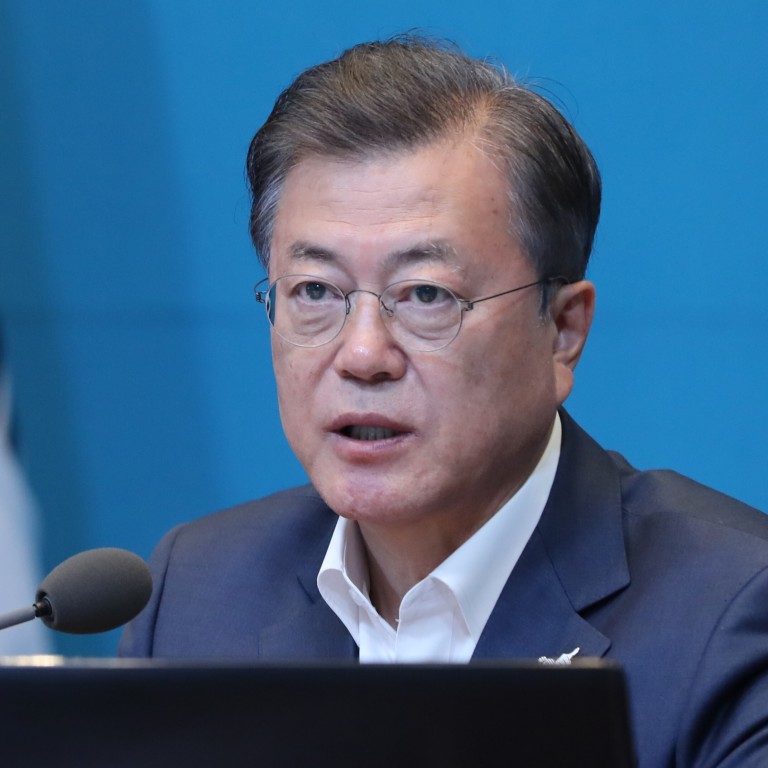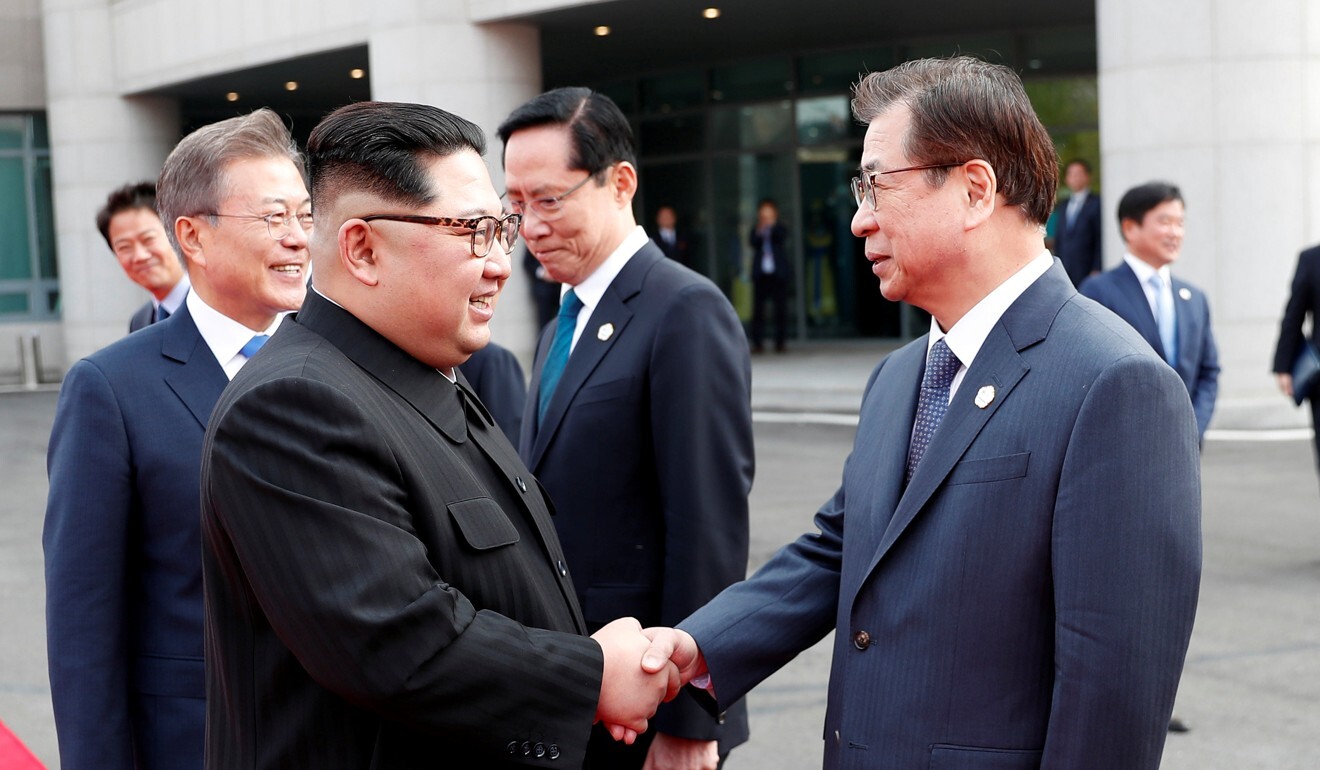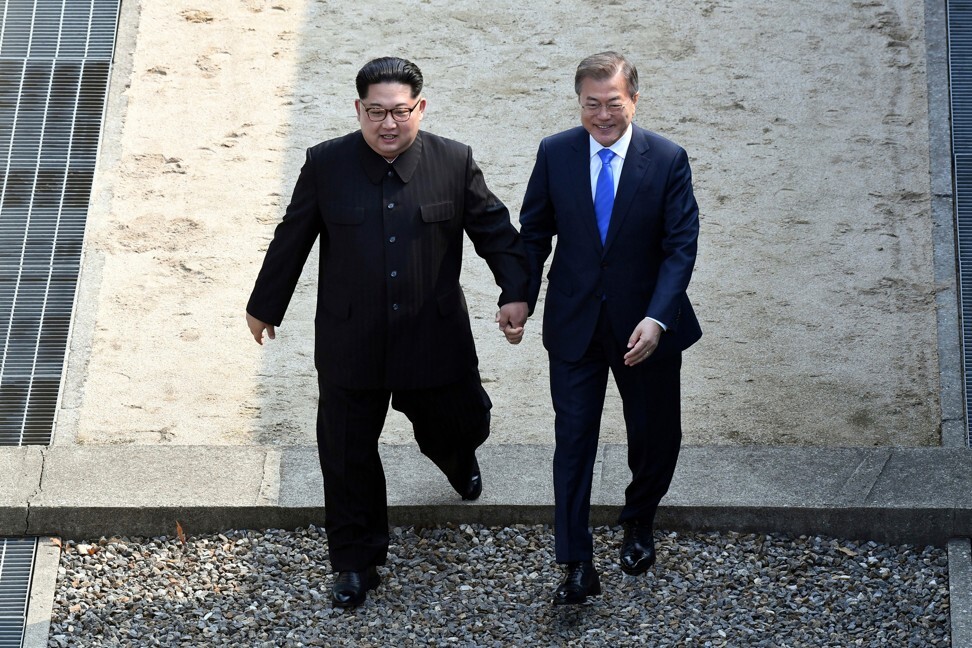
South Korea’s plans to reform National Intelligence Service highlight ideological divisions
- President Moon Jae-in’s Democratic Party wants to overhaul the NIS, which has faced scandals like forced confessions and plotting to rig the 2012 election
- But opponents say a spy agency shake-up would put national security at risk amid ongoing threats from Kim Jong-un’s North Korea
After decades of weathering scandals related to the abuse of its authority, the National Intelligence Service (NIS) now faces the most dramatic shake-up in decades, amid a push for reform that has highlighted deep ideological divisions in the US-allied country over how to manage security threats from its unpredictable neighbour to the North.
The spy agency’s operations and budget would also come under greater oversight by the legislature and the Board of Audit and Inspection, while agents who illegally meddled in domestic politics would face tougher penalties.

The Democratic Party, which commands a supermajority in the National Assembly following a thumping victory in legislative elections in April, introduced a related reform bill earlier this month, following unsuccessful efforts to overhaul the spy agency during previous parliamentary sessions.
“Loyalty to my administration will never be requested,” Moon told intelligence staff in a 2018 speech requesting support for his proposals.
Reforming the NIS through proper processes is one of the tasks of democratisation. It will not be easy.
“The political neutrality of the NIS will be guaranteed unquestionably. The NIS will never be tainted by politics again,” said Moon, who campaigned on reforming the NIS.
Under military dictatorships that ruled South Korea before democratisation in the late 1980s, forerunners to the NIS tortured and imprisoned numerous political dissidents, often on trumped up charges of spying for the Soviet-backed North, with which the South fought a bloody civil war between 1950 and 1953.
In one infamous incident, Korean Central Intelligence Agency agents in 1973 kidnapped then-opposition leader Kim Dae-jung from a Tokyo hotel. In 2007, a government fact-finding panel concluded the spy agency had at least acted with the “implicit permission” of strongman Park Chung-hee, whom Kim had come close to defeating in the 1971 presidential election.
Kim, who was elected as the South’s first left-leaning president in 1997, later recounted that he narrowly escaped death after his captors aborted plans to dump him from a ship at sea when a US military helicopter flew overhead.
Moon’s vision of peace with North Korea goes up in smoke
The court found that NIS agents had worked with private citizens to post messages painting Park’s critics as pro-North sympathisers, a sensitive charge in a country where glorifying the North Korean regime is against the law.

Won was sentenced to a further seven years in prison in February in relation to other charges, including using taxpayer funds to interfere in domestic politics. In another recent scandal, two NIS agents were in 2014 convicted of fabricating documents to frame an ethnic Chinese refugee from North Korea as a spy.
“It’s image is not just not very good, it’s extremely bad,” said Shin Kwang-yeong, a sociology professor at Chung-Ang University in Seoul, of the NIS’ reputation. “Reforming the NIS through proper processes is one of the tasks of democratisation. It will not be easy.”
Those perceptions have been further inflamed by Moon’s decision last month to appoint Park Jie-won, a former four-term lawmaker, as NIS director, despite opposition party claims of him being too close to the North to serve as the nation’s top spy.
Park spent a number of months in prison for arranging the illicit transfer of US$450 million to the North to facilitate the historic 2000 inter-Korean summit.
Moon Jae-in’s new point men for North Korea outreach have chequered pasts
The New Daily, a conservative news site, last week carried the headline “12 reasons Kim Jong-un will be laughing if the National Security Act is revised” for a report detailing opposition to the changes.
“As long as the main enemy, North Korea, exists, reform of the NIS must be sensitive,” said Kim Jong-ha, dean of the Graduate School of National Defence and Strategy at Hannam University.
“Many people, in particular those with a conservative ideology in Korean society, are currently expressing great concern about handing over anti-espionage activities – with investigative authority – to the inexperienced police.”
Daniel Pinkston, an international relations lecturer and former Korean linguist in the US Air Force, said the idea of reform had merit.
“We should wait to see what revisions are made to Article 3, which outlines the duties of the NIS; Article 9, which prohibits NIS interference in domestic politics; Article 12, budget and accounting; and Article 13, which permits the NIS director to refuse testimony before the National Assembly,” said Pinkston, who is based in Seoul and wrote the 2014 report “Risks of Intelligence Pathologies in South Korea.”
“For transparency and accountability, I think Article 13 needs revision so that appropriate oversight can be conducted,” Pinkston said, adding there would need to be provisions for closed hearings to protect sensitive testimony. “This would build trust with Korean citizens who are suspicious of NIS activities.”
South Korea wants ‘unblinking eye’ to monitor Pyongyang under eased rocket restrictions
Moon’s Democratic Party has signalled that reform cannot wait long. On Monday, Kim Byung-kee, a member of the parliamentary intelligence committee who tabled the reform bill, said the spy agency had repeatedly promised to change only to evade its responsibility over the past 30 years.
“The time has now arrived for the NIS to show the nation and the people that it will decide to move forward in the national interest,” Kim said.

